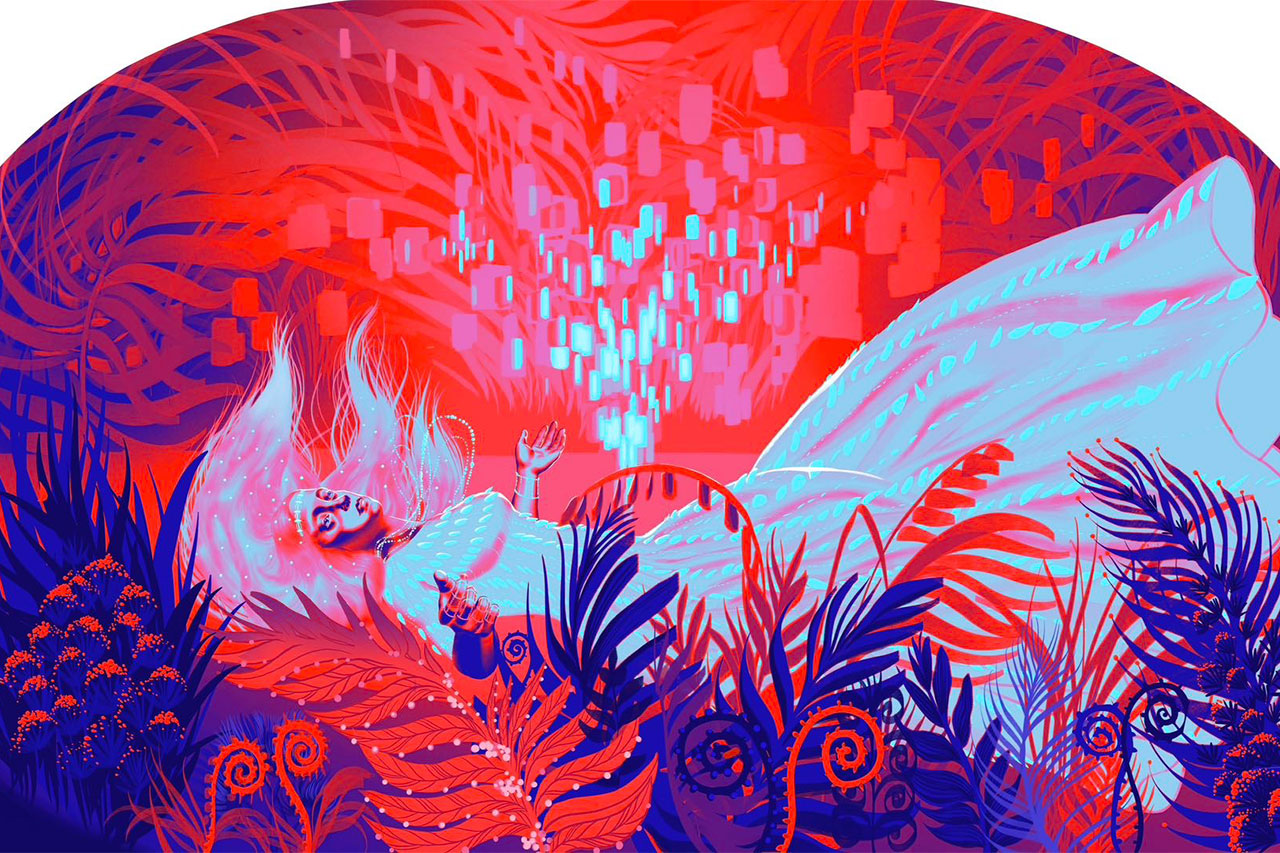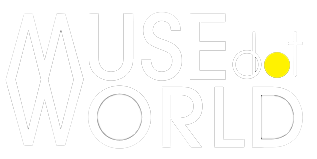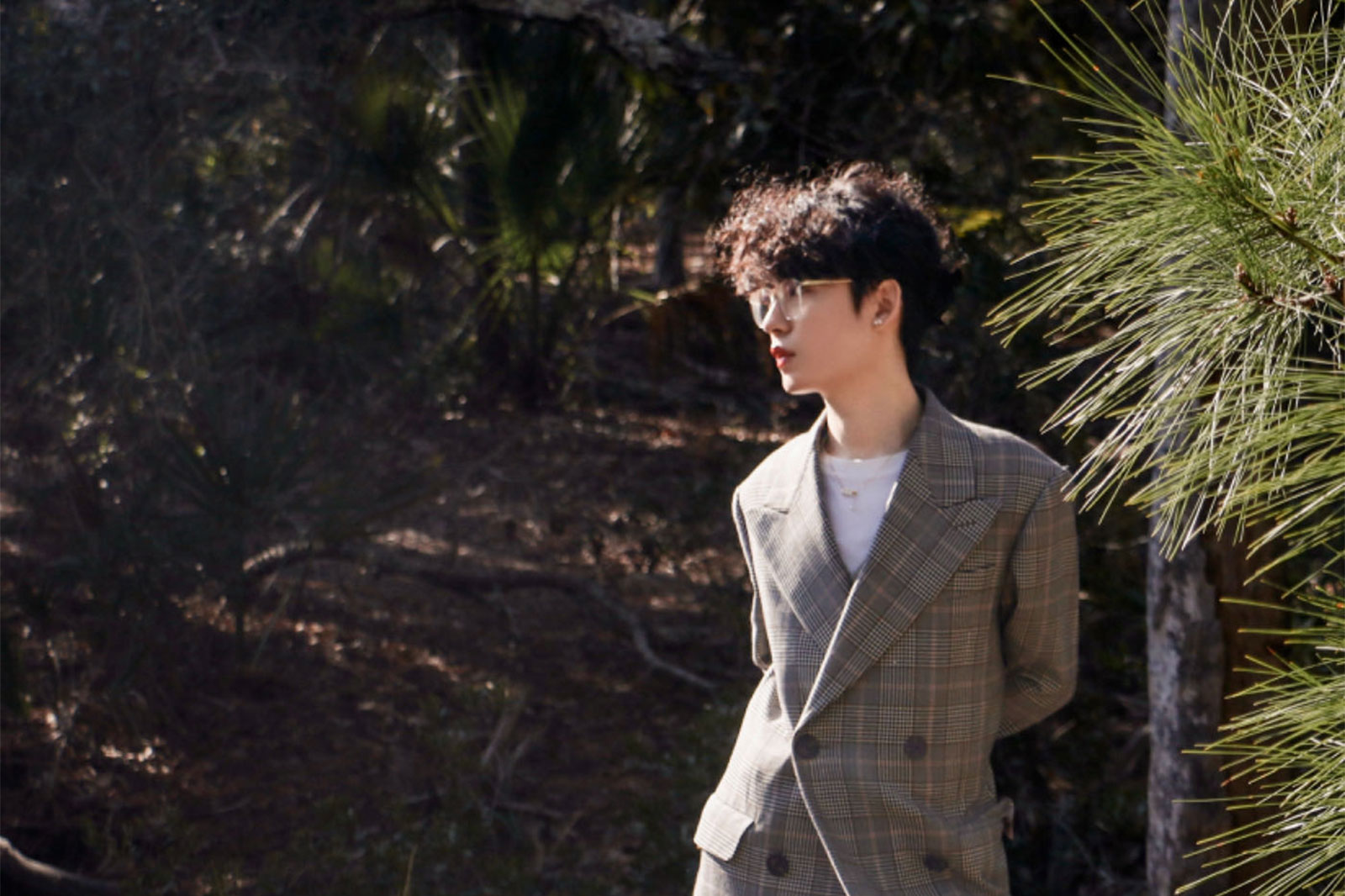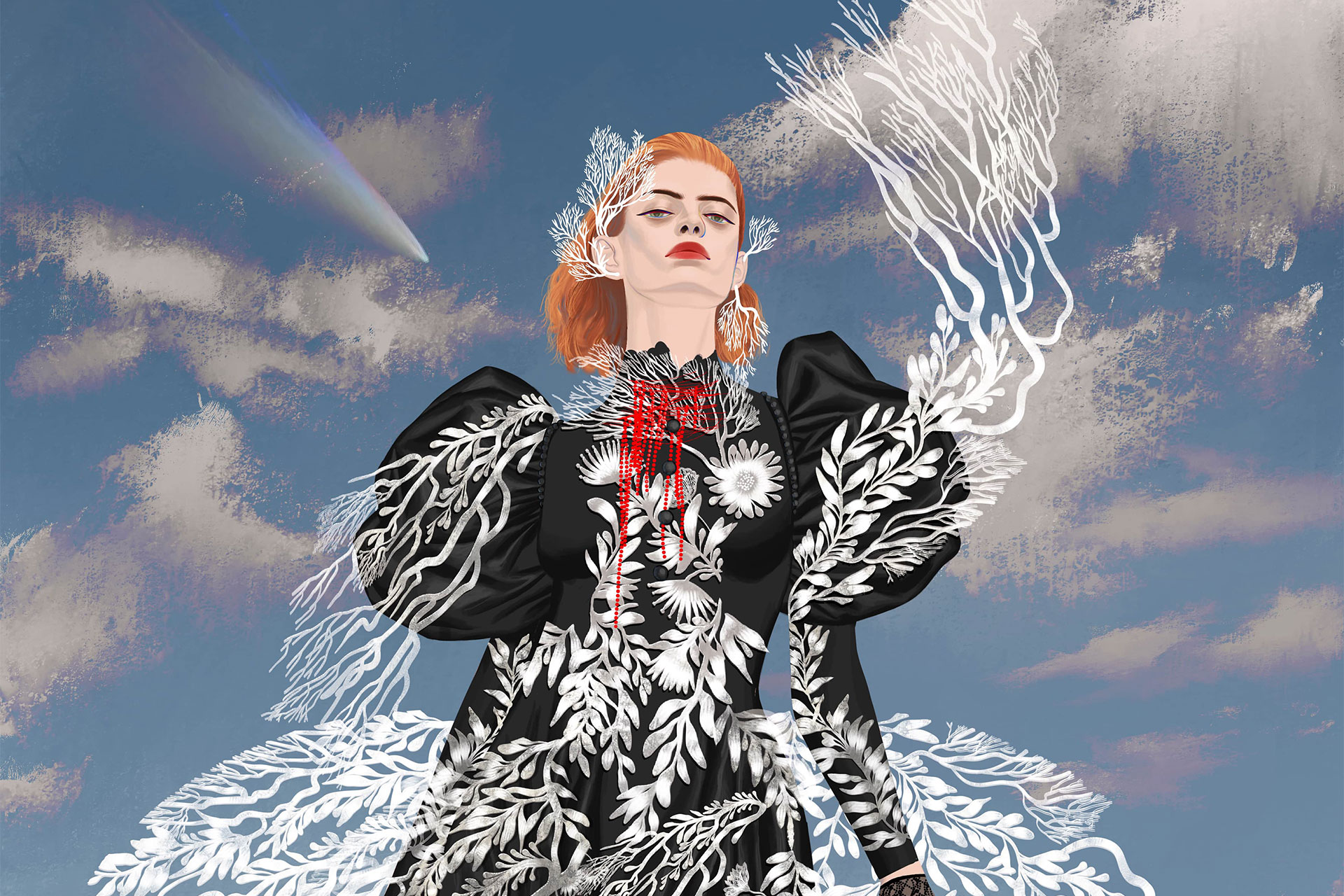Interview with Yang Zhou from the United States

The 2024 London Design Awards Announces its Exceptional Designs of the Year for Season 1
June 27, 2024
Interview with Qingyi Li from the United States
June 27, 2024I am a multidisciplinary artist currently based in Georgia, USA. My creative journey began with a Bachelor's degree in traditional Chinese painting in China, followed by a Master's degree in illustration.
I have a deep passion for illustration and fashion design. My work is heavily influenced by my fascination with mystical cultures, tarot, and cultural anthropology. I find great inspiration in exploring the symbolism, iconography and deeper meanings behind these esoteric realms.
Alongside my artistic pursuits, I have a keen academic interest in cultural anthropology. Studying the art, symbolism and rituals of different cultures, both ancient and contemporary, provides me with a rich well of creative inspiration to draw from.
I am currently continuing to explore, create and evolve as an artist and so excited to see where my multidisciplinary artistic journey takes me next.
From a young age, I felt an irresistible pull towards creative self-expression. As a child, I was constantly sketching, painting, and crafting - it was my way of making sense of the world around me and giving form to my imagination.
Choosing to pursue a creative path professionally was a natural extension of this lifelong passion. I realized that my love for the arts was not just a hobby, but a core part of my identity and purpose. I could not imagine a more fulfilling way to spend my days than by bringing ideas to life through various artistic mediums.
For me, being a creative is not just a career choice; it is a calling. It allows me to constantly learn, grow, and push the boundaries of my own creativity. Each new project is an opportunity to explore uncharted territory, to tell a new story, and to leave a meaningful mark on the world. I chose to become a creative because I could not imagine being truly fulfilled doing anything else.
It is a path that challenges me, inspires me, and allows me to make a positive impact through my work. I feel incredibly fortunate to have the opportunity to pursue my passion every single day.
In my role as a fashion illustrator, I collaborate with fashion brands, designers, and publications to create visually striking and conceptually rich illustrations. These illustrations often serve to communicate the essence and mood of a fashion collection, bringing the garments to life on paper or digitally.
I love the challenge of translating the flow and drape of fabric, the intricate details of accessories, and the overall aesthetics of a fashion line into a compelling, two-dimensional artwork. My passion for tarot and mystical arts has led me to design and illustrate my own tarot decks.
This process involves in-depth research into the symbolism and meanings of each card, as well as the creation of original artwork that resonates with the archetypes and narratives of the tarot. It's a deeply personal and fulfilling project that allows me to merge my spiritual and creative interests into a unique, tangible product.
I believe creativity is about seeing the world from fresh perspectives and making unexpected connections. It's about having the courage to break free from conventional thinking patterns and venture into uncharted territories of thought. When we tap into our creativity, we open ourselves up to a world of infinite possibilities and potential breakthroughs.
In my own creative work, I experience creativity as a fluid, almost mystical process. It's a dance between conscious intention and unconscious intuition, between rigorous technique and spontaneous expression. When I'm in the flow of creating, I feel a sense of timelessness and unity, as if I'm channeling something greater than myself.
Ultimately, I believe that creativity is not just a nice addition to life, but an essential part of what makes us human. It is the driving force behind all progress, innovation, and self-expression. In a world that can often feel chaotic and confining, creativity is the key that unlocks our capacity for joy, meaning, and transformation.
In the realm of visual arts and design, I believe that creativity manifests in the thoughtful interplay of form, function, and meaning. A creative graphic design, for instance, may use unexpected color combinations, bold typography, and striking imagery to create a visceral emotional impact.
A creative fashion design may showcase innovative silhouettes, sustainable materials, and cultural references that challenge industry norms and champion new values. What sets a creative idea apart is its ability to spark something within us - a feeling, a thought, a desire to see the world differently and to be part of the change it envisions. It is an invitation to dream bigger, to question more deeply, and to imagine alternate realities.
My creative process for fashion illustration closely mirrors the steps involved in fashion design itself. It's a multi-stage journey that begins with concept development and ends with the creation of fully realized, emotionally resonant illustrations.
The first step is to create a mood board - a collage of images, colors, textures, and references that capture the overall feel and aesthetic I want to achieve. This sets the tone for the entire project and helps me align with the client's vision or the overarching theme of the collection.
Next, I dive into concept exploration, brainstorming ideas and sketching out rough visual thoughts. With a clear concept in mind, I move on to silhouette research and experimentation. I study historical and contemporary fashion references, analyzing the lines, proportions, and design details that make certain silhouettes stand out. I then create silhouette collages, mixing and matching different elements to create fresh, innovative shapes.
The next phase is all about refining and iterating on these silhouettes. I sketch out numerous variations, tweaking proportions, adding or subtracting design features, and testing out different styling options. The goal is to push the boundaries of what's possible while still maintaining a coherent, recognizable aesthetic.
Once I have a solid set of fashion sketches, I select the strongest silhouettes to move forward with. These chosen designs are then rendered in full color and detail, using my signature illustration style. I pay close attention to fabric draping, texture rendering, and the interplay of light and shadow to create a sense of depth and movement.
Yes, I believe that my Chinese cultural heritage, particularly my early exposure to traditional Chinese painting, has had a profound impact on my creative process and artistic style.
Growing up in China, I was immersed in the rich tradition of Chinese ink wash painting from a young age. This ancient art form, with its emphasis on fluid, expressive brushstrokes and minimalist compositions, taught me to appreciate the beauty and power of simplicity. The delicate balance of ink and negative space, the way a single, well-placed line could convey so much emotion and energy - these were formative lessons that have stayed with me throughout my creative journey.
The influence of Chinese painting can be seen in my approach to line work in my fashion illustrations and designs. I often employ fluid, dynamic lines that dance across the page, creating a sense of movement and vitality. Like the brushstrokes in a Chinese painting, these lines are not just decorative elements, but fundamental tools for expressing the essence and spirit of the subject.
Moreover, the philosophical underpinnings of Chinese art, such as the principles of yin and yang, the five elements, and the harmony between humans and nature, have deeply influenced my creative outlook. I strive to create work that is balanced, harmonious, and attuned to the natural flow of energy. Even when I'm working in a contemporary or Western style, these ancient Chinese principles inform my aesthetic choices and creative decision-making.
It is an incredible honor to be recognized as the winner of the 2024 MUSE Creative Awards. This distinction is a testament to the passion, dedication, and hard work that I pour into every creative project I undertake.
I am grateful to the MUSE Creative Awards for providing a platform to celebrate and showcase the best in global creativity. Winning this award not only affirms my own creative vision but also connects me to a community of talented, like-minded individuals who are pushing the boundaries of what's possible in the world of art and design.
1. Encouragement of the artist's personal style.
2. Artistic subjects with no taboos.
3. Mature and clear rules of the market.
China has a truly unique and influential position in the global creative industry, shaped by its rich cultural heritage, ancient artistic traditions, and far-reaching impact on other Asian cultures.
One of the key factors that sets China apart is its incredibly deep and diverse cultural roots. With a civilization spanning over 5,000 years, China has developed a vast repository of art, literature, philosophy, and cultural practices that continue to inspire and influence creatives to this day. From the intricate brushwork of traditional Chinese painting to the elegant forms of Chinese calligraphy, from the colorful symbolism of Chinese opera to the profound wisdom of Confucian and Taoist thought, Chinese culture provides an inexhaustible well of inspiration for artists and designers.
Moreover, China's cultural influence extends far beyond its own borders, particularly in the Asian region. Countries like Japan, Korea, and Vietnam have all been profoundly shaped by Chinese culture throughout history, absorbing and adapting Chinese art forms, aesthetics, and philosophical traditions into their own unique cultural expressions. This cultural exchange has created a rich, interconnected tapestry of Asian creativity that is deeply rooted in Chinese cultural heritage.
- Greater emphasis on sustainability.
- More diverse and inclusive storytelling.
- Blurring of boundaries between disciplines.
- Heightened importance of emotional connection: In an increasingly digital and automated world, creative works that forge deep emotional bonds with audiences will be more valued than ever.
- Cultivate your unique voice: Focus on developing a distinctive creative style and perspective that sets you apart. Embrace what makes you unique and let it shine through in your work.
- Master your craft: Continuously hone your technical skills and stay up-to-date with the latest tools, techniques, and trends in your field. The better you are at your craft, the more effectively you can bring your ideas to life.
- Be original and innovative: Push yourself to think outside the box and come up with fresh, original ideas. Don't be afraid to take creative risks and experiment with new approaches.
- Tell compelling stories: Whether you're designing a logo, illustrating a book, or creating an advertisement, always strive to tell a compelling story that connects with your audience on an emotional level.
- Pay attention to detail: In the creative industry, details matter. Be meticulous in your execution and take the time to refine and perfect every aspect of your work.
- Collaborate and network: Build relationships with other creatives, both within and outside your field. Collaborations can lead to exciting new opportunities and help you grow as an artist.
- Be open to feedback: Seek out constructive criticism from mentors, peers, and industry professionals. Use their feedback to identify areas for improvement and continually refine your work.
- Show your best work: When submitting to the MUSE Creative Awards or any other competition, select your strongest, most impactful pieces that showcase your unique voice and innovative approach.
- Believe in yourself: Have confidence in your abilities and the value of your creative perspective. Believe that your work has the power to make a difference and inspire others.
For those who want to improve their drawing skills, I think the foundation is important. A solid foundation in drawing can help an artist execute their artwork better. China's large number of private basic art education studios for middle school or high school students (national college entrance exams) would be the best resource.
There, those who want to improve their drawing skills or drawing fundamentals will get focused and precise training in drawing techniques, but they should also be wary of the damage that China's exam-based art education can do to an artist's creativity and passion for art.
Personally, it took me a long time to recover from this damage, so I have mixed feelings about the exam-based art education from my hometown. On the one hand, it has allowed me to improve my painting skills by leaps and bounds, but it has also limited my perspective on art and consumed my love for it.
The tarot prophecies I gave to my friends and me were very accurate. I managed to foresee through the Thoth Tarot that a friend of mine would deceive, betray, and hurt me in the future, and that I would not be able to control my suspicions of him, and that our relationship would be full of concealment, lies, foolishness, and hurt (but I consciously ignored this message from the Tarot at the time, and it turned out that it was indeed the case).
That my friend would be embarking on a relationship in February or August (which has already happened), that my friend's jewelry had been in her house (not lost), and I predicted the gender of the person she suspected of stealing the jewelry.
Winning Entries
Mourning under the sun | 2024
A fashion advertising piece inspired by the Victorian culture of mourning, this fashion illustration expresses concern and anxiety about the exploitation …
(Read more at MUSE Creative Awards)
Ophelia's Revenge | 2024

Yang Zhou
Yang Zhou is a multidisciplinary artist residing in Georgia, USA. His creative journey commenced with a Bachelor's degree in traditional Chinese painting in China, which was followed by a Master's degree in illustration.
Read more about this interview with Qihang Fan for Four Typologies, the Gold Winner of the 2024 MUSE Creative Awards.


